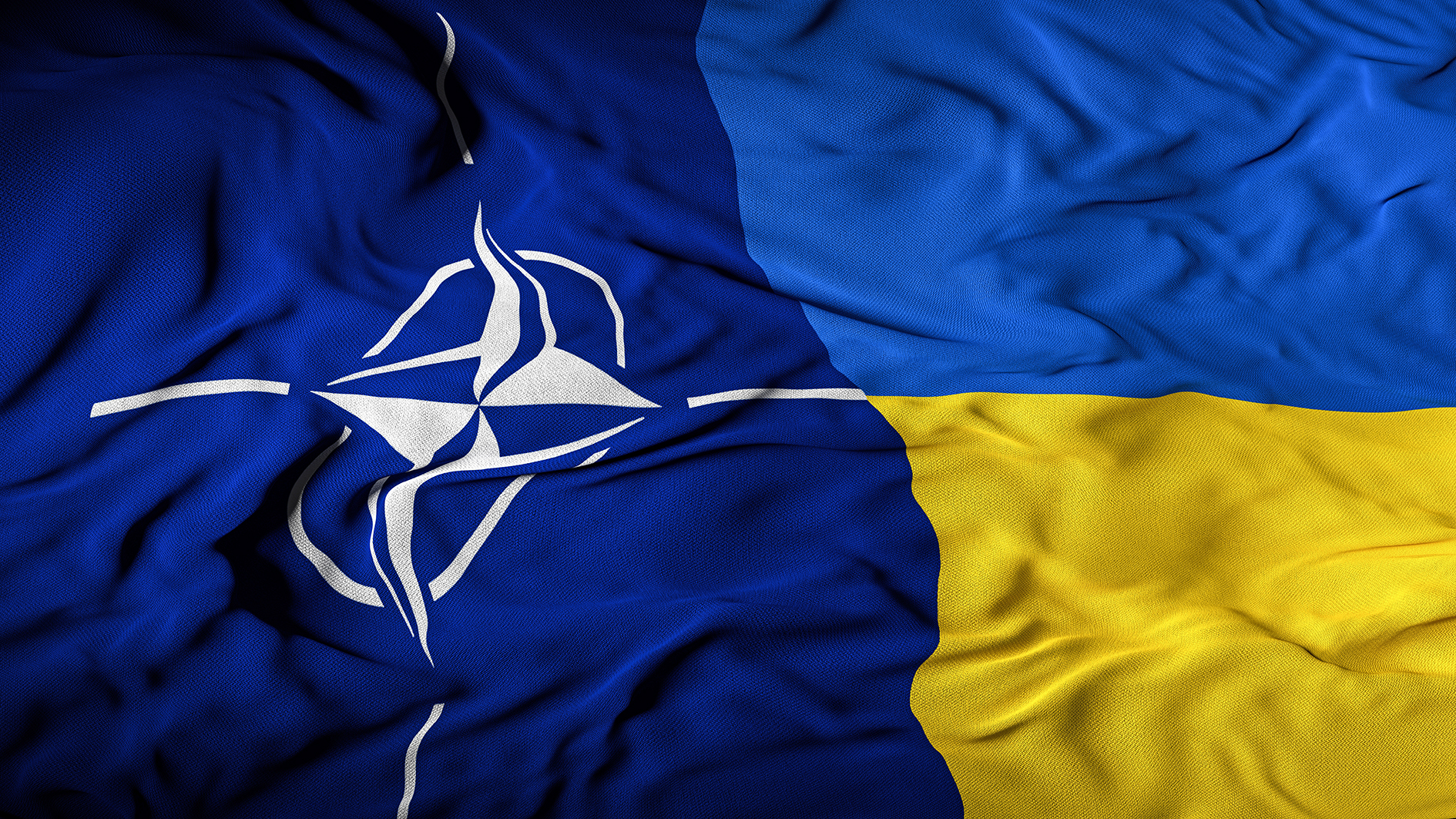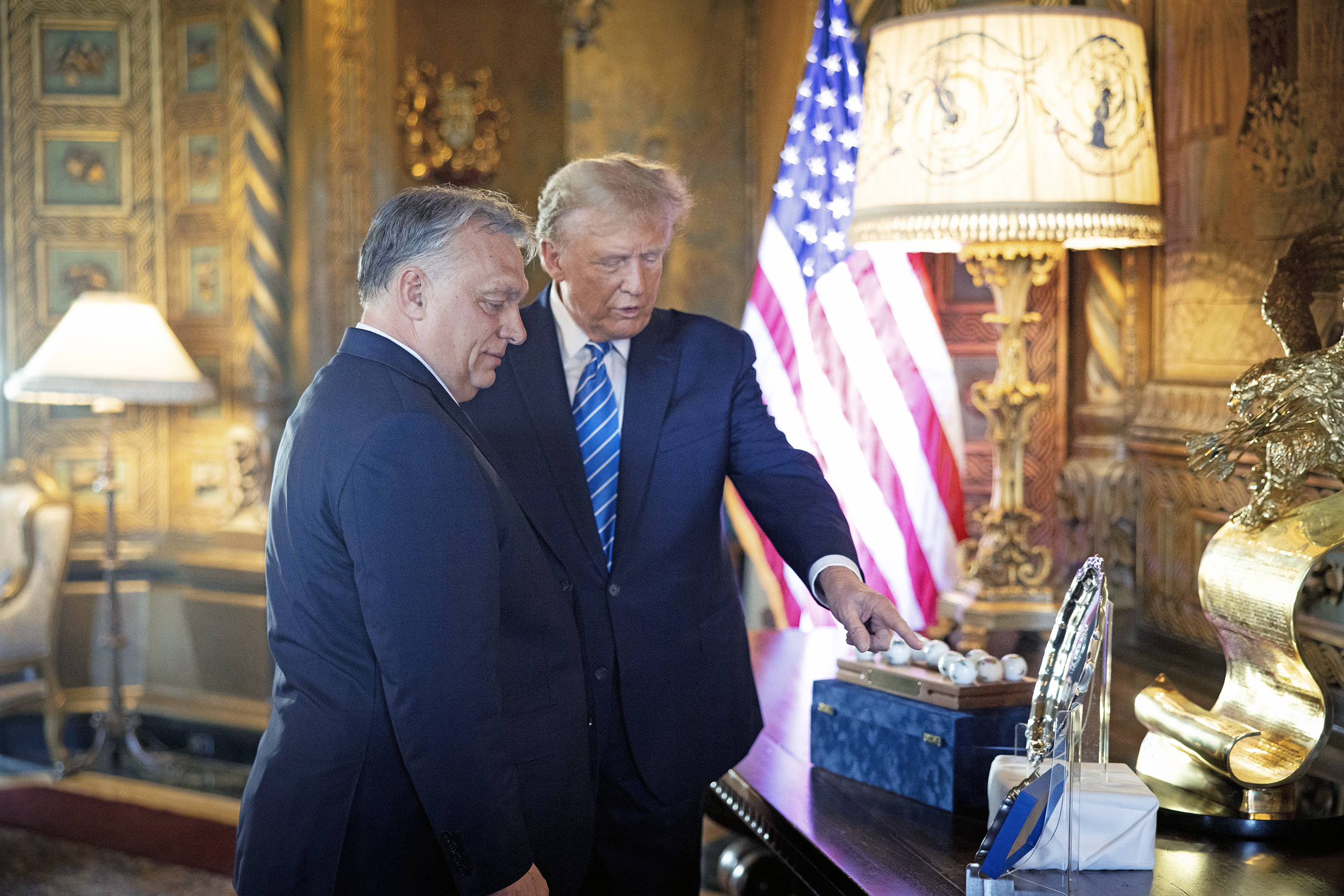‘Unusual’ Billboards and Grain Disputes

Specialists of the National Food Chain Safety Office (Nébih) take samples from a corn shipment from Ukraine at the Záhony road border crossing late in the evening of April 17, 2023. The route of all grain shipments arriving from Ukraine to Hungary by road and rail is checked, and only transit traffic vehicles are allowed to pass through the country, State Secretary for Food Industry and Trade Policy Márton Nobilis of the Ministry of Agriculture said on the spot. Minister of Agriculture István Nagy announced on April 15 that, like Poland, Hungary would temporarily ban the import of grain and oilseeds originating from or coming from Ukraine, as well as several other agricultural products.
Photo by Zsolt Czeglédi / MTI.
Billboards urging the withdrawal of Russian troops from Ukraine have appeared across Hungary over the past few weeks, according to a report from telex.hu. The posters draw parallels between the 1956 Hungarian Revolution and the current situation in Ukraine, bearing an inscription from Hungary’s uprising: “Russians, go home!”
According to the text on the poster, “There can be peace in Ukraine when the Russian occupying army withdraws.” The campaign was commissioned by the Facebook group Nyugati Pályán and was supported by the U.S. Embassy in Budapest.
Prime Minister Viktor Orbán called the campaign “unusual,” adding that Hungarians “don’t need to be reminded of their own history [….] and certainly don’t need to be convinced to pay attention to their security [.…] especially with regard to Russia,” in an interview with Kossuth Rádió on April 14. During an earlier press conference on April 12, Orbán’s chief of staff Gergely Gulyás said the “pro-war” billboard campaign would not change Hungary’s position on peace being “in the common good.”
While the campaign is unlikely to affect domestic policy, other efforts by the United States to put pressure on Hungary regarding its relationship with Russia seemed to have had an effect. U.S. Ambassador to Hungary David Pressman announced the sanctioning of the Budapest-based International Investment Bank and several of its executives, including the IIB’s Hungarian vice president Imre Laszlóczki, because of their ties to Russia, at a press conference on April 12.
“The presence of this opaque Kremlin platform in the heart of Hungary threatens the security and sovereignty of the Hungarian people, their European neighbors, and their NATO Allies,” Pressman explained.
The following day, Hungary’s Ministry of Economic Development announced that the country would withdraw from the IIB and recall its delegates from the Russian-based lender, which had moved its headquarters from Moscow to the Hungarian capital in 2019.
Untenable Operations
While acknowledging the “important development role” it had played in the CEE region, the announcement said that the sanctions had made the continuing operation of the bank untenable. Although previous members Bulgaria, the Czech Republic, Romania and Slovakia had ended their participation in the IIB after the start of the war in Ukraine, Hungary had continued to maintain a 25.27% stake in the IIB, the second-largest share after Russia, which at the time controlled 45.44%.
Meanwhile, Hungary has also been able to influence external policy based on actions of its own. For weeks, countries bordering Ukraine have complained that European Union support given to the war-ravaged nation’s farmers was effectively undercutting their domestic markets. With the EU seemingly turning a deaf ear, Hungary and Poland took matters into their own hands last weekend, announcing temporary bans of agricultural products from Ukraine.
According to Bloomberg News, the initial reaction from the European Union was to slam the move, saying “unilateral actions” were unacceptable and a potential breach of the bloc’s trade policy. “It’s important to underline that trade policy is of EU exclusive competence and, therefore, unilateral actions are not acceptable,” Miriam Garcia Ferrer, European Commission spokeswoman for trade and agriculture, was quoted as saying on April 16.
But the EU position appeared to soften after Slovakia joined Hungary and Poland in announcing its own ban, according to euroactiv.com
“We are working now on a second package of measures where we would continue supporting these countries that are being affected by the inputs from Ukraine,” a commission spokesperson said during the EU executive’s daily press conference on April 17. A EUR 56 million package to help Poland, Bulgaria, and Romania had been agreed upon at the end of March and funded through a financial envelope of EUR 450 mln per year included in the agricultural reserve fund of the EU’s farming subsidies program. As the second package is “still under discussion,” the commission declined to add further details on the amount, timing, or allocation criteria.
This article was first published in the Budapest Business Journal print issue of April 21, 2023.
SUPPORT THE BUDAPEST BUSINESS JOURNAL
Producing journalism that is worthy of the name is a costly business. For 27 years, the publishers, editors and reporters of the Budapest Business Journal have striven to bring you business news that works, information that you can trust, that is factual, accurate and presented without fear or favor.
Newspaper organizations across the globe have struggled to find a business model that allows them to continue to excel, without compromising their ability to perform. Most recently, some have experimented with the idea of involving their most important stakeholders, their readers.
We would like to offer that same opportunity to our readers. We would like to invite you to help us deliver the quality business journalism you require. Hit our Support the BBJ button and you can choose the how much and how often you send us your contributions.








